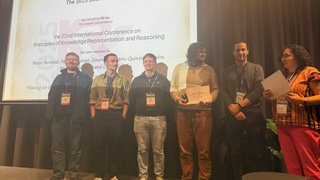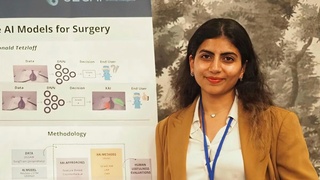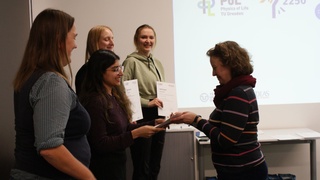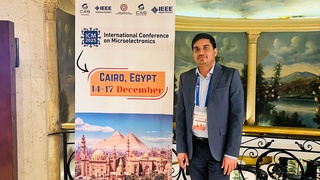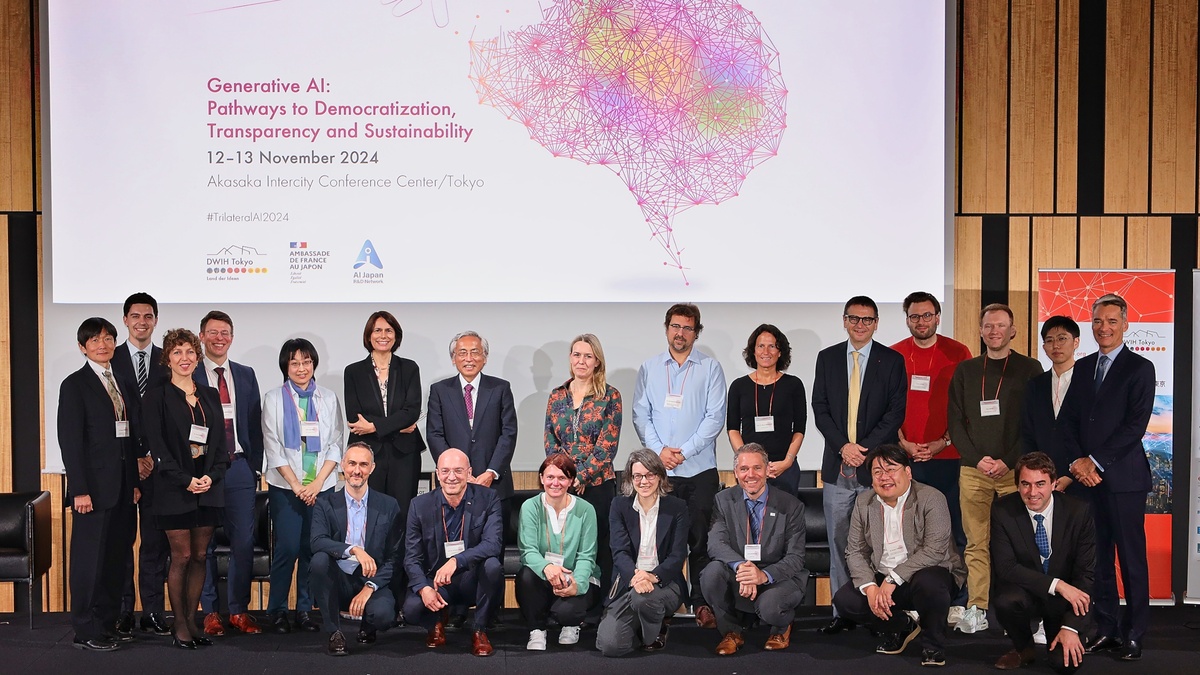
December 10, 2024
Jonas Karge Represents the Konrad Zuse Schools of Excellence in AI in Tokyo
The Generative AI: Pathways to Democratization, Transparency and Sustainability conference took place in Tokyo on the 12th and 13th of November. The event brought together researchers and representatives from industry from a broad range of disciplines. As part of the conference, PhD student Jonas Karge was warmly welcomed to the German Embassy in Tokyo as a representative of the DAAD Konrad Zuse Schools of Excellence in AI – SECAI, relAI and ELIZA .
The conference was dedicated to a variety of topics related to Generative AI, with a particular focus on the latest developments in Large Language Models (LLMs) such as ChatGPT. The main focus was on the challenges with regard to the democratic aspects of Generative AI. A central topic was the question of how access to LLMs can be made globally fair. Both the unequal distribution of the resources required worldwide for the use and training of LLMs and the challenge of adequately reflecting regional languages were discussed.
Furthermore, there was intensive discussion on how to openly communicate which data is used for training LLMs and how possible biases arise in the responses of these models. Another key topic at the conference was sustainability. The focus was on challenges such as the immense consumption of raw materials for the hardware of LLMs, the high costs of training and use and the problem of hardware recycling.

Jonas Karge presents his poster at the conference in Tokyo
About Jonas Karge
Jonas Karge has been a PhD student at the Chair of Computational Logic under the supervision of Prof. Dr. Sebastian Rudolph since September 2020 and has been part of the SECAI team since fall 2024. With a background in philosophy and logic, he conducts research at the intersection of social choice theory, multi-agent systems and epistemology.
At the conference, he presented his research in the form of a poster. The focus was particularly on the connection between democracy research and the investigation of voting systems in the context of generative AI applications.
